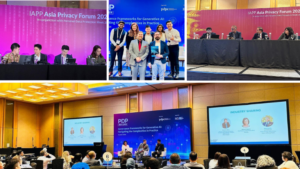Consent for Processing Personal Data in the Age of AI: Key Updates Across Asia-Pacific
This Issue Brief summarizes key developments in data protection laws across the Asia-Pacific region since 2022, when the Future of Privacy Forum (FPF) and the Asian Business Law Institute (ABLI) published a series of reports examining 14 jurisdictions in the region. We found that while many offer alternative legal bases for data processing, consent remains the most widely used, often due to its familiarity, despite known limitations.
This Issue Brief provides an updated view of evolving consent requirements and alternative legal bases for data processing across key APAC jurisdictions: India, Vietnam, Indonesia, the Philippines, South Korea, and Malaysia.
In August 2023, India passed the Digital Personal Data Protection Act (DPDPA). Once in force, the DPDPA will provide a comprehensive framework for processing personal data. It affirms consent as the primary basis for processing but introduces structured obligations around notice, purpose limitation, and consent withdrawal, while enabling future flexibility for alternative legal bases.
Vietnam‘s Decree on Personal Data Protection took effect in July 2023. It sets clearer standards for consent while formally recognizing alternative legal bases, including for contractual necessity and legal obligations. This marks a key step in broadening lawful processing options for businesses.
Indonesia’s Personal Data Protection Law (PDPL), enacted in October 2022, introduces a unified national privacy law with an extended transition period. It affirms consent but also allows processing based on legitimate interest, public duties, and contract performance, bringing Indonesia closer to global privacy frameworks.
In November 2023, the Philippines‘ National Privacy Commission issued a Circular on Consent, clarifying valid consent standards and promoting transparency. The guidance aims to reduce consent fatigue by encouraging layered, contextual consent interfaces and outlines when consent may not be strictly necessary.
South Korea amended PIPA (in force since September 2023) and related guidelines promote easy-to-understand consent practices and recognize additional legal grounds, especially in the context of AI. A 2025 bill is under consideration to expand the use of non-consent bases for AI-related processing.
The Personal Data Protection (Amendment) Act 2024, published in October 2024, introduces stronger enforcement tools and administrative penalties in Malaysia. While the amendments do not change the legal bases for processing, they enhance the compliance environment and signal stricter oversight.
The Issue Brief also explores how the rise of AI is impacting shifts in lawmaking and policymaking across the region, when it comes to lawful grounds for processing personal data.
As the APAC region shifts from fragmented, sector-specific rules to unified legal frameworks, understanding the evolving role of consent and the growing adoption of alternative legal bases is essential. From improving user-friendly consent mechanisms to strengthening enforcement and expanding lawful processing grounds, these changes highlight a more flexible and accountable approach to data protection across the region.



